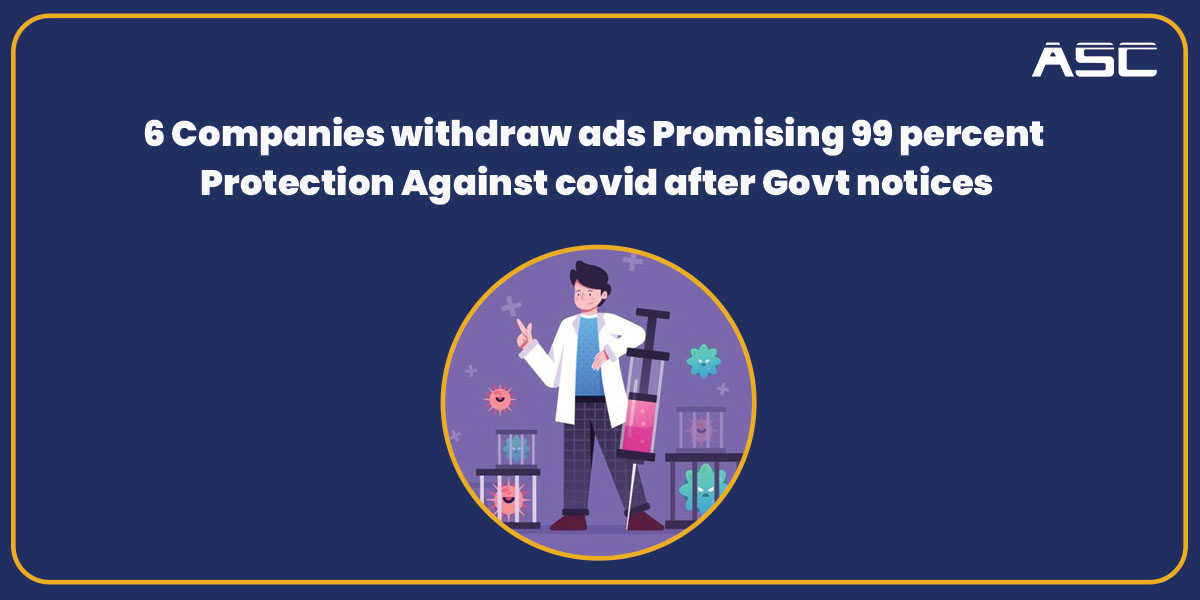6 Companies withdraw ads Promising 99 percent Protection Against covid after Govt notices

Six companies in India have withdrawn advertisements claiming that products manufactured by them offer more than 99 percent protection against Covid-19 or germs. Wherein, four of the companies have decided to put out corrective advertisements against their previous claims.
The Central Consumer Protection Authority has issued 56 notices in total since last year, of which 29 were for unfair trade practices and the other 27 were for misleading advertisements.
‘Country of origin’ info violations
The Secretary of Consumer Affairs Department stated that 202 notices for violations of a government mandate on the ‘country of origin’ declaration have also been issued to e-commerce sellers and entities. The notices were issued between 16 October 2020 and 22 October 2021.
The highest number of notices were 47 issued against electronic products, 35 notices issued against clothing items. The Consumer Affairs official also said that 75 companies have compounded the offenses, wherein 68 notices have compounded for violations linking to the country of origin. The department has collected almost Rs 42 lakh as penalties for these compounded offenses. These violations comprise of stating the false country of origin on the listed products on e-commerce platforms and failure to assert the country of origin.
The Consumer Protection (E-Commerce) Rules, 2020 clause mandates that any seller providing goods and services on a marketplace e-commerce entity requires to offer all applicable details about goods/services provided for sale by the seller that includes country of origin. These are compulsory for allowing the consumer to make an up-to-date decision at the pre-purchase stage.
The Legal Metrology (Packaged Commodities) Rules, 2011 mandate country of origin declaration on e-commerce platforms. In coordination with the legal metrology department with CCPA they are working for obligatory action under the legal metrology act.
The Central Consumer Protection Authority has also decided to initiate a country-wide drive to avoid the sale of counterfeit and spurious goods that violate “quality control orders” published by the central government. Violation of compulsory standards has been categorized as a cognizable offense under the Bureau of Indian Standards Act, 2016, as such poor-quality goods can be “dangerous, hazardous, and harmful to lives of consumers.

Leave a Reply